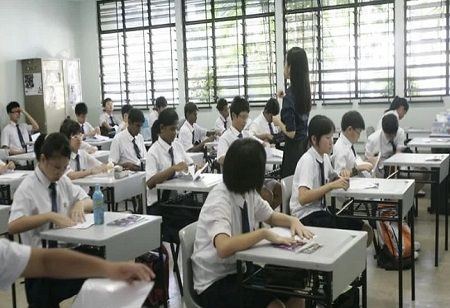At Lakeside Primary School in Singapore, the scene unfolds as a trolley laden with laptops is brought to the door of a fifth-grade classroom. Eager students spill out into the hallway, ready to engage with their AI-infused mathematics lesson. Under the guidance of a teacher equipped with a headset, the students are tasked with setting their own learning objectives for the day, leveraging the devices that have become integral to their weekly lessons.
On the whiteboard, the day's focus is declared: "the conversion of measurements involving decimals," a topic exemplified by converting meters to centimeters. The students quickly access the Adaptive Learning System (ALS) embedded within an online portal, a tool developed by the Education Ministry specifically for fifth and sixth-grade mathematics. This ALS allows them to select their preferred difficulty level while the AI engine tailors questions based on individual learning data and other pertinent factors.
Among the students is Lovelle Ng Bo Yee, who finds herself engrossed in the ALS interface, where she learns to convert meters to centimeters by multiplying by 100. Visually aided by an arrow on the screen, she comprehends the shift of the decimal point to arrive at the correct answer. For Lovelle, aged 11, the ALS serves as a motivating force in her mathematical journey. She appreciates its adaptive nature: easier questions follow mistakes, accompanied by explanations for improvement, while correct answers unlock more challenging tasks.
Cynthia Goh, the mathematics head at Lakeside School, underscores the student-centric approach to learning. Here, students wield the power to dictate their learning paths, with options to revise, seek guidance, or tackle challenges as they see fit. The teacher's role transitions to that of an observer and occasional guide, allowing students like Lovelle to take ownership of their learning experiences.

